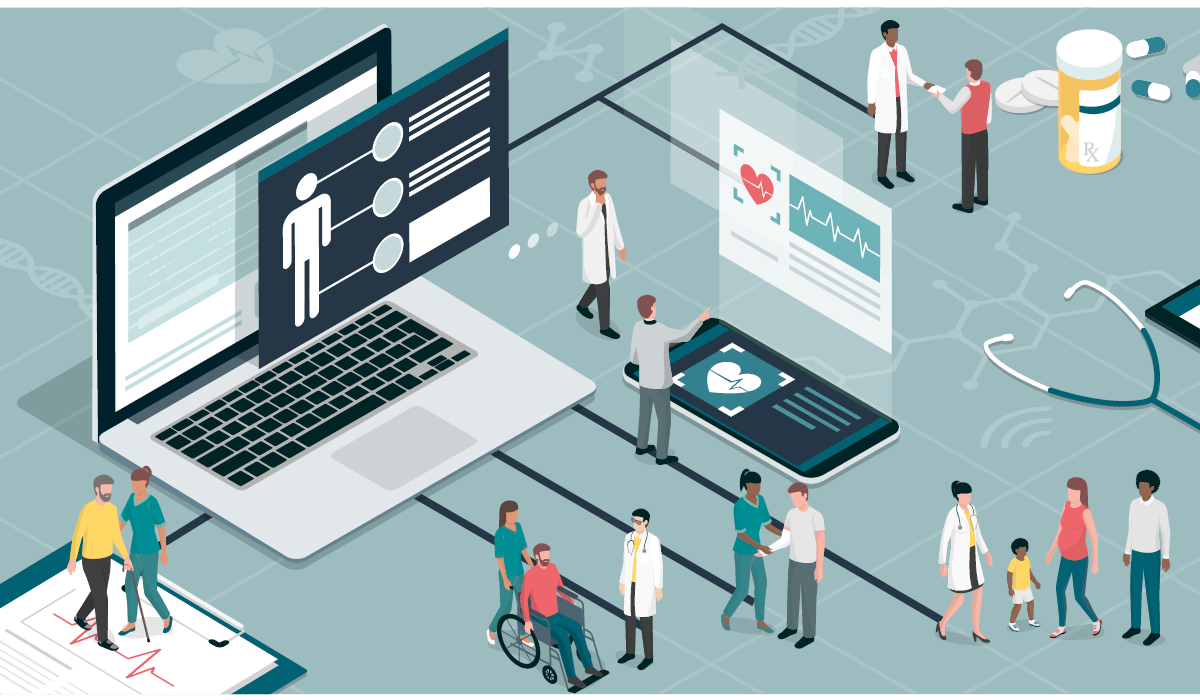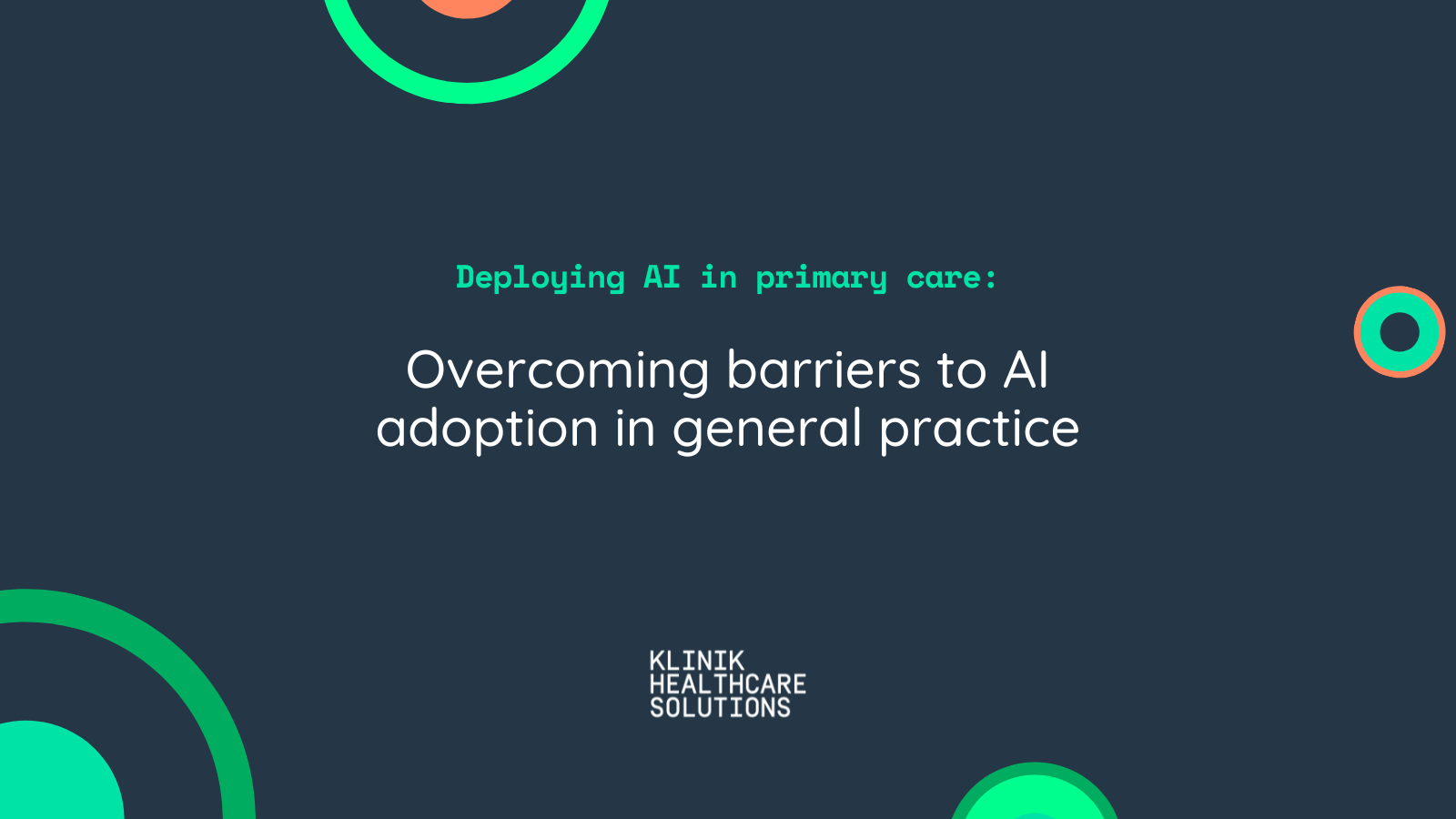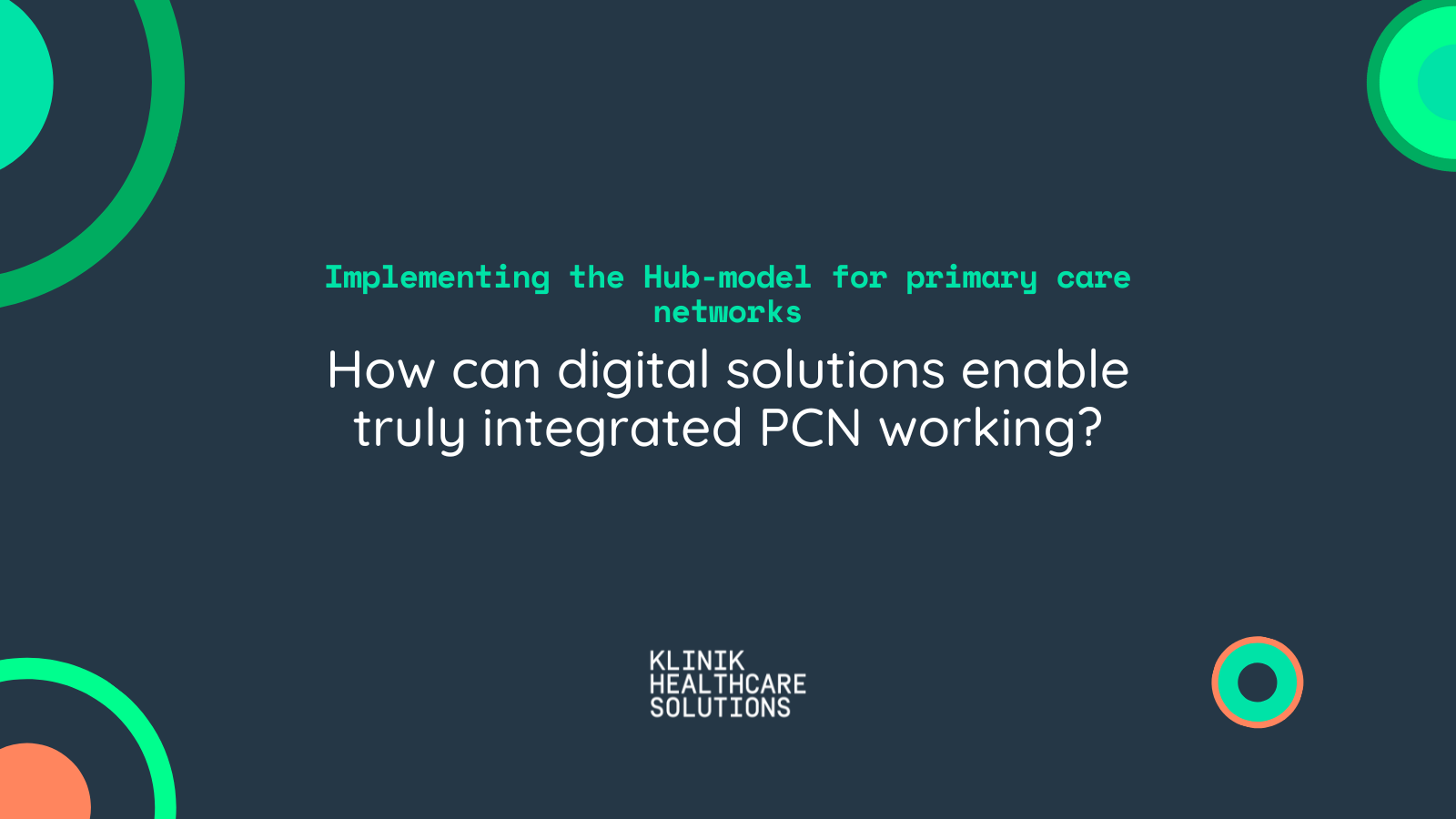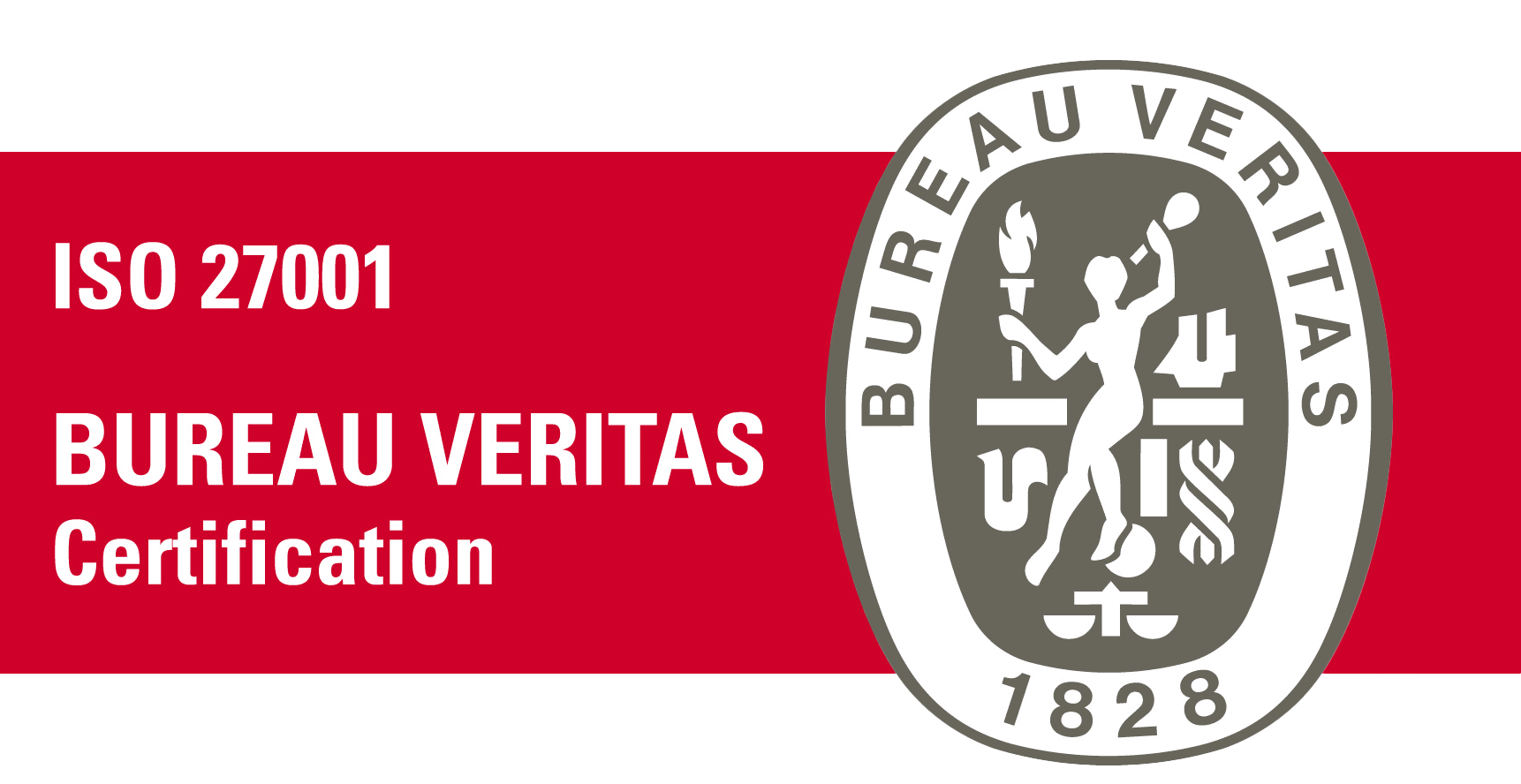Patient flow management is vital for the future of general practice

Having battled through the coronavirus, GPs are now faced with a huge backlog in care. Yet existing pressures remain. GP numbers are falling, Primary Care Networks are forging ahead, and surgeries have to take stock of the rushed move to going digital first.
Ben Wood, director of UK sales and operations, argues that GPs need to use digitally-driven patient flow management to help meet the future of primary care.
The GP surgery is, for most, the front door to the NHS. It has had to adapt, more than most, to pandemic-driven change in the delivery of healthcare.
Practices responded quickly, working with suppliers to ensure a ‘digital front door’ could help surgeries meet immediate this demand. NHS England’s drive to total triage helped, and now ‘digital first’ looks set to become the norm.
Now we are through the peak of the crisis the demands on GPs and surgeries look set to grow. Postponed appointments have to take place. Patients have put off coming to see a doctor for weeks. They want their unresolved questions answered.
The rapid growth in phone and online consultations could help. Used appropriately, they can help reduce demand on the practice (although recent research indicates they could stimulate demand, or - to use a different phrase - identify unmet need).
We know from working with practices, however, that digital channels can be used so that healthcare can be provided care safely, conveniently and efficiently.
The growth in digital channels has another benefit; it creates a lot of data about demand. With the right technology, practices from multiple sites can now see the volume of calls and emails from their patients, alongside the number of walk-in appointments.
Through data, primary care can get a more accurate picture of demand, in a health and care ecosystem that can sometimes plan its provision based on educated guesswork.
Complexity is growing
As we know more about demand, we know more about what we need to meet that demand; the context in which we meet this demand can also be a challenge.
For GPs, workforce issues are a real threat. The current model of care requires them to triage more cases than is possible, and take an active part in running the business.
The RCGP reports there are falling numbers of GPs, with 712 fewer fully-qualified FTE GPs in March compared to a year earlier. As RCGP chair Professor Martin Marshall said: “It's imperative that the GP workforce has the capacity as well as resources to handle demands post-crisis.”
The Primary Care Network contract looks to provide some of those resources. Practices that have signed up to the new PCN contract will have help in recruiting additional roles such as clinical pharmacists and physiotherapists. Many practices already use paramedics to help take the pressure off GPs.
The idea is that these new roles will help reduce the pressure on GPs, and other care settings such as hospitals. Care can be provided closer to home, with the oversight of general practice.
The thinking is good, but it adds to the increasing complexity of care to be managed by the practice. Rotas, processes and procedures all need to be established, and all at a time when the queue - virtual or otherwise - looks set to grow.
Meanwhile, market consolidation continues. Practices are coming together to deliver more holistic care, and to try to save money on back-office costs.
So as demand is growing, so is the complexity of the challenge ahead. GP numbers are falling, people’s needs are growing, and the resource mix is changing. If practices are to use technology to cope with this ‘new normal’, they have to do it at pace.
Patient flow management can help practices
The fact is, of course, that this situation existed before the pandemic. Practices needed to manage demand and resources to meet the needs of tens of thousands of people, and many were already turning to technology.
One such example is the Haxby Group, which is embracing patient flow management to help it meet demand.
Patient flow management uses intelligent triage technology to direct people to the optimal resource in primary care. It gives the practice control over growing demand.
Patients from across this 11-site can now use a simple online assessment tool to help streamline patient flow and receive the most appropriate care. Online triage software combines AI-infused symptom checking and urgency assessment with clinical appointment reservations.
This digital front door uses this information to identify patient need, and then directs this towards a physio, a pharmacist, or a GP - any one of the several roles that will grow in number under the new PCN contract.
This frees up capacity so that GPs are seeing the right patients. It helps GPs work ‘at the top of their licence’ - they see the patients who they can help the most. With as many as one in four GP appointments unnecessary, it can be a huge time-saver.
Online triage also gives the Haxby Group a better chance of sharing resources across the multiple practices it runs across York and Hull. If demand is higher in York, practice staff in Hull can help their colleagues by providing support to patients, such as through phone or video consultations.
Using technology has given the group better control over patient flow, making for a more productive practice. As Dr Thomas Patel-Campbell, Haxby Group GP Partner and Chief Clinical Information Officer (CCIO), notes: “Using the Klinik online service means we can now get the correct patient to the correct point of care in the most efficient way."
Patient flow management can help health and care systems
These benefits need not be confined to general practice. The pandemic has shown that GPs are just one part of the health and care system. Care homes, hospitals, and people’s own homes are places where healthcare is needed.
To be truly transformative, the digital front door to general practice needs to be the digital front door to the wider healthcare system. This is where Whole System TriageTM is the answer.
Whole System TriageTM takes the principle of patient flow management and applies it across health and care systems. Doctors direct people to the right type of care whatever the setting, so that their needs are met in the most efficient and effective way possible.
It can help achieve the ambition of NHS Reset initiative, which the NHS Confederation is leading. This project is looking to use the pandemic as a time to rethink how we approach health and care, so that it becomes ‘system by default’ - something that Confed says would be ‘critical to the process of recovery and reset across the country’.
System by default means looking at the whole of health and care, and directing people to the right care for their needs. It means we have to understand the needs of patients, and design a system that can best meet those needs.
Ambitions need to be achievable
It is an ambitious goal, and one that could have huge ramifications. If we are going to match demand with supply, and do so with the resources we have to call upon, then we need to be using the data that digital first primary care is giving us.
We also need to recognise that GPs are a pinch point in the process of care. With the right tools, they can triage people across the whole system. Technology can support them in this, by optimising their patient flow around the needs of the populations they serve.
This will have to be a staged process. Better control over patient flow within a practice can be achieved now. This gives the practice, and the GP, more time to spend with the right patients. It puts people with musculoskeletal conditions directly in touch with the practice physio. It enables the admin team to work more flexibly, and so provide a better patient experience.
Next, with closer working across care settings, we can take the same principles and deliver the ‘system by default’ approach that is required, with general practice triaging the needs of their local populations, and doing so in the most efficient way possible through the application of clinically-supervised and directed technology.
As a result, patient flow management can be the future of health and care across the country.
Primary care has opened the digital front door to health and care needs through the pandemic, This can be a good thing; we should not let a crisis go to waste. Now, it’s all about the execution. The Haxby Group, and the 450 other sites across the UK and Europe we work with, are at the forefront of executing this change.
Klinik Access is a patient flow management software that directs patients to the optimal resource in primary care. The system’s unique algorithm interprets the person’s symptoms to make a provisional assessment, and estimates the urgency of the care needed. Based on this, the person is automatically referred to the right place for care to begin.








